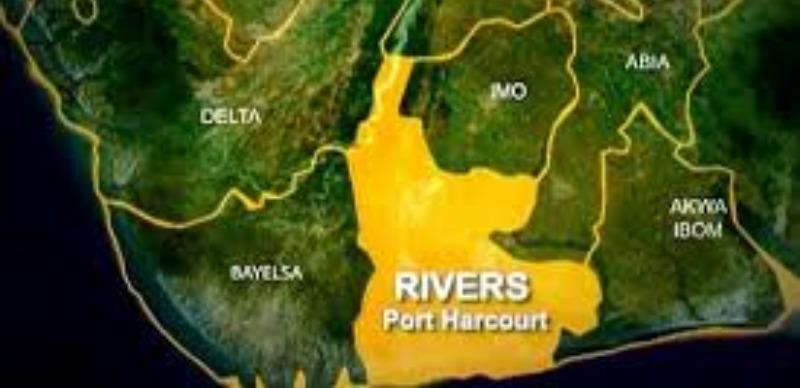The communities of Omuma and Etche Local Government Areas in Rivers State, Nigeria, are grappling with a complex web of security and developmental challenges, prompting their leaders to appeal for intervention from the state government. Administrators from both areas voiced their concerns during stakeholder meetings facilitated by the Rivers State Commissioner of Police, Olugbenga Adepoju, who represented the State Sole Administrator, Vice-Admiral Ibok-Ete Ibas (retd). The dominant issues raised included a surge in kidnapping incidents, pervasive land grabbing, the disruptive presence of herdsmen, and a range of other criminal activities that are jeopardizing the safety and well-being of residents. These issues underscore the urgent need for comprehensive strategies to address these multifaceted problems and restore peace and stability to these communities.
In Omuma, the local administration highlighted land grabbing and politically motivated arrests as particularly pressing concerns. The prevalence of oil bunkering, an illegal activity that siphons off valuable resources, has further exacerbated the challenges facing the community. Concerns were also raised regarding the alleged misconduct of a police officer in the area, adding another layer of complexity to the security landscape. The traditional ruler of Omuma, while acknowledging the state government’s efforts in peacebuilding, underscored the irony of their exclusion from oil derivation benefits despite their status as an oil-producing area. This economic disparity contributes to a sense of marginalization and fuels resentment, which can further destabilize the community.
The situation in Etche echoes the concerns raised in Omuma, with residents expressing deep anxiety over the escalating crime rate, especially kidnapping. Land disputes, often fueled by competing claims and a lack of clear land ownership records, remain a persistent source of tension and violence. The incursion of herdsmen into the area has further compounded the security challenges, leading to clashes with local farmers and escalating fears among residents. An incident recounted by the President-General of Etche, Silas Anyanwu, exemplified the vulnerability of the community members, highlighting the extortion and harassment faced by residents at the hands of criminals. The absence of Miyetti Allah leadership, a prominent Fulani socio-cultural association, at security meetings was also criticized, hindering efforts to address the herder-farmer conflicts through dialogue and negotiation.
Beyond security concerns, both Omuma and Etche are grappling with significant developmental deficits that impact the quality of life for their residents. In Etche, the decay of essential services, particularly in healthcare and education, was highlighted. The closure of healthcare facilities has left residents with limited access to medical care, placing an undue burden on the remaining operational facilities. The education sector also faces challenges, with schools suffering from a shortage of teachers and dilapidated infrastructure. These shortcomings underscore the need for investment in essential services to improve the well-being of the community and ensure access to basic rights.
The stakeholders’ meeting provided a platform for community members to voice their concerns directly to the state government representative. They emphasized the need for enhanced security measures, including the establishment of additional police posts and the redeployment of the Divisional Police Officer in Omuma, following allegations of misconduct. The call for the revival of the Delta Rubber Company reflects a desire for economic opportunities that can engage the youth and mitigate restiveness, a crucial factor in addressing the root causes of crime and instability. The plea for improved electricity supply in Okehi highlights the link between basic infrastructure and security, as adequate lighting can deter criminal activities. Furthermore, the deplorable state of waste management systems underscores the need for improved sanitation services to address public health concerns.
In response to the concerns raised, Commissioner of Police Adepoju assured the communities of the government’s commitment to addressing their challenges. He pledged to investigate the allegations against the DPO and take appropriate action. Adepoju also emphasized the importance of community involvement in security efforts, urging residents to report suspicious activities promptly and collaborate with law enforcement agencies. He outlined plans to increase security deployments to combat oil bunkering and land grabbing in Omuma, and promised to prioritize the rehabilitation of critical infrastructure, including healthcare and education facilities. Regarding the herdsmen crisis, Adepoju assured the communities that the police would enhance surveillance and engage with all relevant stakeholders, including Miyetti Allah, to find sustainable solutions. The state government affirmed its dedication to promoting peace, security, and equitable development in both communities and urged residents to remain vigilant and collaborate with government initiatives. The commitment to review boundary disputes with Abia State to ensure fair resource allocation addresses a long-standing concern that has the potential to escalate tensions between communities. The overall message from the government emphasizes the interconnectedness of security, development, and community engagement in building a stable and prosperous future for Omuma and Etche.














